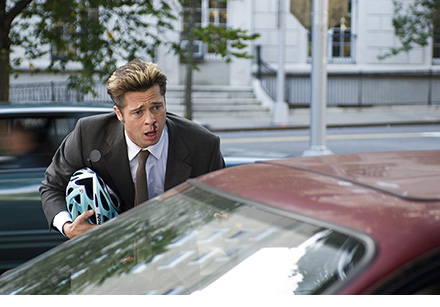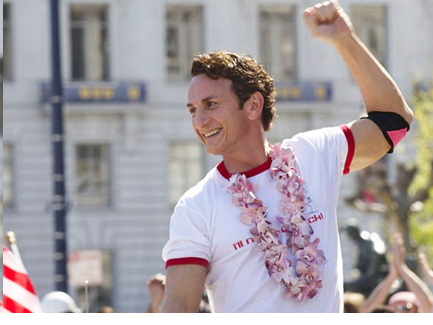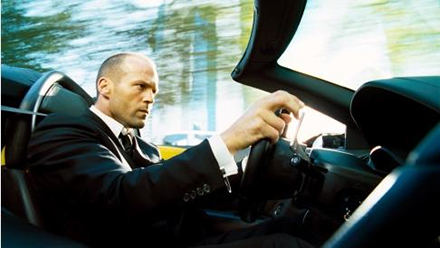 “Slumdog Millionaire,” the new film from Danny Boyle, is captivating but much like his last work, the commendable sci-fi mystery thriller “Sunshine,” it’s a movie compromised by a conventional, tonally unbalanced final reel.
“Slumdog Millionaire,” the new film from Danny Boyle, is captivating but much like his last work, the commendable sci-fi mystery thriller “Sunshine,” it’s a movie compromised by a conventional, tonally unbalanced final reel.
In a baker’s dozen worth of years, Danny Boyle has emerged as one of the most terrific storytellers in world cinema. The brilliance of “Shallow Grave” and “Trainspotting” were followed by wayward efforts at the cusp of the millennium in “A Life Less Ordinary” and “The Beach,” before he righted himself with a string of four, and counting, superior productions. “28 Days Later” is an apocalyptic zombie flick of the highest order, while the magical “Millions” is a sincere and heartfelt children’s story which never resorts to soppiness. It’s the catalogue of an admirable, conscientious filmmaker. Despite his varying success, the mercurial Boyle is an unignorable talent.
In “Slumdog Millionaire,” Boyle tells the tale of Jamal (Dev Patel), a lower class young man in Mumbai toiling as a call center dogsbody who is unexpectedly on the verge of life-altering success on “Who Wants to Be a Millionaire.” Told predominantly in flashback, the film begins with a present-day police station interrogation of Jamal where he begins to ruminate on his life, starting with his earliest memories of surviving a stark childhood with his older brother Salim, and Latika, a young girl from the neighborhood who would become his heart’s lifelong muse.
The lives of the self-described “Three Musketeers” are shown in three distinct stages, and the first segment surges with the most energy. In their youngest incarnation, when they are no more than three and five, Jamal (Ayush Mahesh Khedekar) and Salim (Azharuddin Mohammed Ismail) are mischievous, nomadic orphans who survive on pluck and guile. They befriend fellow orphan Latika (Rubiana Ali), but she loses touch with the boys when they embark on a daring escape from a nefarious orphanage.
Especially in this first section, “Slumdog Millionaire” is filmed majestically by cinematographer Anthony Dod Mantle but not beatifically, so that Mantle, Boyle and co-director Loveleen Tandan remove the reverential tone, never succumbing to falling back on stereotype, which would have been fashioned by patronizing slow pans across rivers of wading supplicants. Instead, the first solid hour of “Slumdog” reverberates as vibrant, luminous, human and genuine. A scene in which the precocious toddler Jamal meets an Indian film legend who swoops by helicopter into a crowd in his impoverished community is visceral, mucky, and redolent. At the conclusion of the first segment, Boyle constructs a scintillating set piece as the lads perch on top of a moving train, Jamal dangling over the car’s side by his feet in the grip of his brother, his tiny hands pawing through a window for steaming bread laying enticingly on a tray. They are discovered, a tussle ensues and they fall from the train, emerging from the grass as pre-teens. It’s a wonderfully accomplished transition.
This second segment shows them as prepubescents living as financial foragers, Jamal (Tanay Chheda) happy to dupe tourists at the Taj Mahal, while Salim (Asutosh Lobo Gatiwala), perhaps drowning his vulnerability, submerges into himself into vice and crime. When the now estranged boys reach adulthood and the film becomes a quest for requited love, it becomes less thrilling.
Dev Patel is nicely cast as the adult Jamal. Most well known for his role as the goofy Anwar on the television series “Skins,” Patel brings believable earnestness to his ardor for Latika and likable humility to his “Millionaire” scenes, especially in comparison to the oily charm of the show’s host, Prem Kumar, played with obvious relish by Anil Kapoor. Underscoring his diversity as an actor, Patel possesses viable presence and lends gravity to his interrogation and torture scenes.
Latika, though, is a very surface role in adulthood, with no depth or context, and very little to say. She is lovely, but the beauty of actress Freida Pinto cannot arrest the idea that her Latika, as a grown woman, is simply a character in new clothes. A scene later in the film where Jamal rediscovers Latika, then tricks his way into her mobster boyfriend’s compound to plead for her to leave the lair feels forced and is shot unconvincingly. The magical has become the mundane.
The same dilemma bewitched Boyle’s “Sunshine” which was enveloped in trippy spookiness until it resorted to slasher mode in the final moments. There’s a disconnect in the mood between the body of the films and the resolution in both movies. Yet Boyle is undoubtedly an important filmmaker; viewers should continue to be infatuated with his search for the transcendent.

 “Burn After Reading” is a rollicking romp. After the morose, lauded “No Country for Old Men,” the Coen brothers have returned quite quickly with a slapstick gem which zips along on the crest of a zany story, hilarious script and a bounty of beautifully fulfilled comic performances.
“Burn After Reading” is a rollicking romp. After the morose, lauded “No Country for Old Men,” the Coen brothers have returned quite quickly with a slapstick gem which zips along on the crest of a zany story, hilarious script and a bounty of beautifully fulfilled comic performances. For a film clearly cradled in the sad, poignant context of Harvey Milk’s fate, beginning with grainy file footage of police persecution and the actual moment of Dianne Feinstein announcing an assassination, “Milk” is a joyous remembrance. Far removed from the vibe of his recent obtuse efforts, Gus Van Sant has made a distinctly human work which by the closing credits is a potpourri of the inspiring, moving, tender, riotously funny and genuinely heartwarming.
For a film clearly cradled in the sad, poignant context of Harvey Milk’s fate, beginning with grainy file footage of police persecution and the actual moment of Dianne Feinstein announcing an assassination, “Milk” is a joyous remembrance. Far removed from the vibe of his recent obtuse efforts, Gus Van Sant has made a distinctly human work which by the closing credits is a potpourri of the inspiring, moving, tender, riotously funny and genuinely heartwarming. 